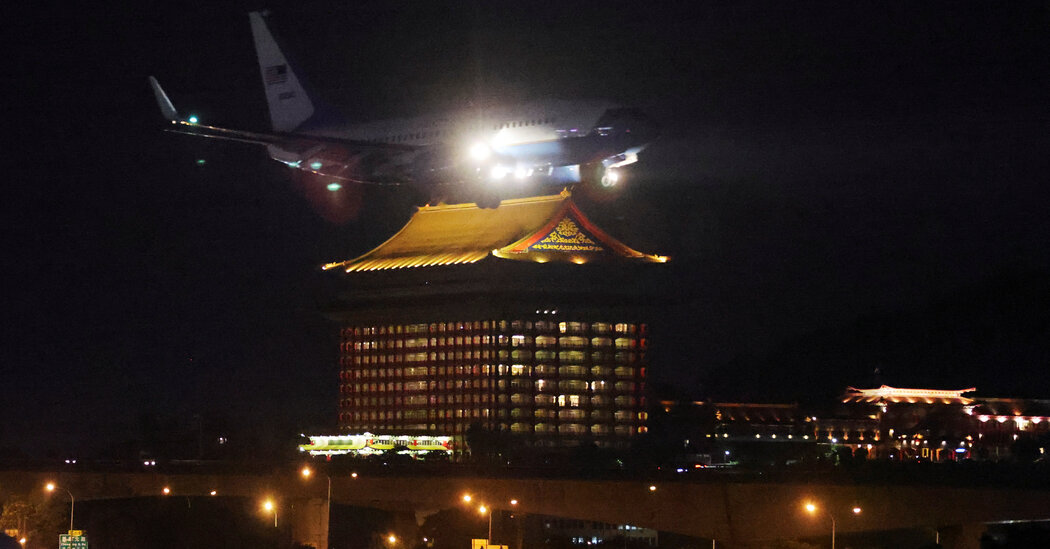Pelosi’s widely watched flight to Taipei took a circuitous route. Here’s why.

Nancy Pelosi’s plane departing Kuala Lumpur, Malaysia, for Taipei on Tuesday evening was one of the most closely tracked flights of all time. It was also unusually circuitous, taking a three-hour detour.
The reason: to avoid an area heavy with Chinese military presence.
The United States Air Force plane carrying Ms. Pelosi flew a roundabout route that experts said was designed to avoid escalating one of the most controversial and high-profile diplomatic visits by a U.S. official to Taiwan in recent history.
Data tracking the flight showed Ms. Pelosi’s plane departing from Kuala Lumpur and heading southeast toward the Indonesian part of Borneo, then turning north to fly along the eastern part of the Philippines. A more direct — and shorter — route would have been to fly northeast in a direct route over the South China Sea to Taiwan.
The journey took seven hours — the unusual path adding an additional three hours to a journey that would normally take four hours and 15 minutes, said Ian Petchenik, director of communications at FlightRadar24, the website tracking Ms. Pelosi’s plane.
The flight path was a clear indication that the possibility of military conflict between the United States and China is all too real in the South China Sea, where China has built up its military presence with bases in recent years.
“This move of having the plane bypass the South China Sea is one way of showcasing that there is a genuine interest in managing the crisis and de-escalating the situation,” said Collin Koh, a research fellow at the S. Rajaratnam School of International Studies at Nanyang Technological University in Singapore.
Flying over Chinese military bases “would have given the Chinese the opportunity to disturb the flight and given them a chance for aircraft interference,” Mr. Koh said. “The risk of such close encounters was too high.”
Officials have described ties between the United States and China as being at their lowest point since 1972, when President Richard Nixon traveled to Beijing to restart diplomatic relations between the two countries. In June, the American defense secretary, Lloyd J. Austin III, warned China against “provocative and destabilizing activity” near Taiwan.
The decision by Ms. Pelosi, the speaker of the House, to visit Taiwan — and her reaffirmation of America’s “unwavering” support for Taiwan’s democracy — has inflamed Beijing, which claims the island for its own. For weeks it was unclear whether she would even go through with the stop in Taiwan during her planned trip to Asia. Then, while her flight was in the air on Tuesday, more than 2.9 million people logged on to watch the flight path on FlightRadar 24, a popular flight tracking site. The heavy traffic load caused the site to falter at one point.
It was the most tracked flight of all time, FlightRadar24 said in a blog post, surpassing even the return flight to Russia of Aleksei Navalny, the Russian opposition leader, after a near-fatal nerve agent attack.
When Ms. Pelosi departed Taiwan on Tuesday evening, interest in her travels was somewhat more muted. Just 92,000 people were watching.